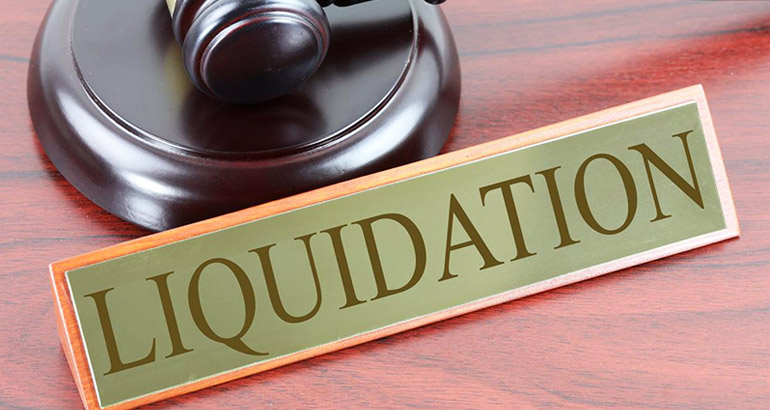See This Report on Company Liquidation
Table of ContentsThe smart Trick of Company Liquidation That Nobody is DiscussingSome Known Details About Company Liquidation The Greatest Guide To Company LiquidationCompany Liquidation - The FactsCompany Liquidation Can Be Fun For Everyone
A liquidator is particularly selected to look after the ending up of a company's affairs in order for it to be closed down commonly when the company is going insolvent. The liquidator is an impartial 3rd party who oversees the sale of business properties in order to settle any arrearages.Their role includes, yet is not restricted to: Unbiased Overseer: A liquidator is entrusted with serving as an impartial 3rd party to supervise the whole company liquidation procedure. Create Declaration of Matters: Liquidators should produce a detailed declaration of events record. This paper is distributed to creditors, describing the current economic status of business at the time of its liquidation.
After the liquidation of a company, its existence is removed from Business House and it ceases to be a legal entity. If directors browsed the procedure without concern, there would certainly be no penalties or personal responsibility for solid debts expected. Now, with a clean slate, supervisors can discover brand-new organization opportunities, though professional consultation is a good idea.
Company Liquidation Things To Know Before You Buy
If even more than 90% of all business investors agree, liquidation can take area on short notification within seven days, the minimal legal notification for lenders. Generally, the bigger the liquidation and the even more assets and funding the organization has, the longer the procedure will take.

We comprehend that no 2 companies coincide, which is why we will take the time to be familiar with your service so we can suggest the finest course of action for you. We just work in your ideal passions, so you can be entirely certain in the solution we supply.
Little Known Facts About Company Liquidation.
In the UK, there is a set process to shutting down or restructuring a limited company, whether it is solvent or bankrupt. This process is called liquidation and can only be dealt with by an accredited insolvency professional (IP) based on the Insolvency Act 1986. There are 4 main sorts of business liquidation procedure: Financial institutions' Voluntary Liquidation (CVL); Mandatory liquidation; Administration; and Members' Voluntary Liquidation (MVL).

In these situations, it is necessary that the company ceases trading; if the business remains to trade, the directors can be held directly accountable and it can lead to the insolvency specialist reporting wrongful trading, understood as misfeasance, which may bring about lawsuit. The supervisors appoint an insolvency practitioner and once this has been agreed and confirmed, there is a meeting with the investors.
Obviously, if there are no shareholders, this action of the procedure is not required (Company Liquidation). The IP takes control of the business and begins the firm liquidation procedure. The directors are no more entailed in what occurs, including the sale of the firm's assets. Nevertheless, if the supervisors want any one of the properties, they can notify the IP.
Some Known Details About Company Liquidation
The major distinction is that the firm's financial institutions applied to the court for a winding up order which forces the bankrupt company right into a liquidation procedure. For the most part, financial institutions take this action as a last resource due to the fact that they haven't received settlement with other types of arrangement. The court selects an insolvency practitioner, likewise called an official receiver, to carry out the compulsory business liquidation procedure.
This sort of company liquidation is not voluntary and directors' conduct is reported to the UK's Secretary of State once the liquidation process has been finished. Consequently, any type of director that falls short to coordinate with the IP or has actually been involved in supervisor misconduct, or an illegal act, may cause serious consequences (Company Liquidation).
It is utilized as a method to safeguard the company from any kind anonymous of legal activity by its financial institutions. The supervisors of the business concur to make normal repayments to resolve their debts over a duration of time. The designated manager deals with the volunteer administration process, and obtains the payments which they after that disperse to lenders according to the agreed like this amounts.
Not known Facts About Company Liquidation
This supplies the company with time to create a plan going forward to rescue the business and avoid liquidation. At this factor, directors hand control of the firm over to the selected manager. If a company is solvent yet the supervisors and investors wish to shut the organization, a Members Voluntary Liquidation is the right alternative.
The firm liquidation procedure is managed by a liquidator selected by the directors and shareholders of the company and they should sign an affirmation that there are no creditors remaining. The liquidation process for an MVL resembles that of a CVL because properties are know however the earnings are distributed to the directors and the investors of the business after the liquidator's charges have been paid.
Comments on “Things about Company Liquidation”